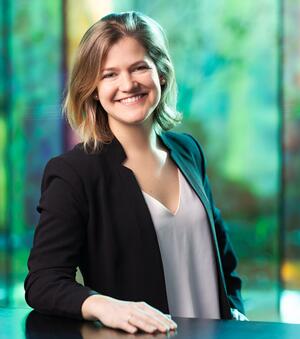 Incarceration in a prison deprives people of not only their freedom, but also their community, identity, and sense of self-worth. ISM alumna Amanda Weber M.M. ’13 is attempting to restore joy and artistic expression to people confined at correctional facilities in Minnesota. In 2015 she founded Voices of Hope, a choral program at the women’s facility in Shakopee; in 2020 the program expanded to the men’s facility in Stillwater. Amanda sat with ISM staff member Laurie Ongley for a conversation about restorative justice and the healing power of music. The following interview has been edited for brevity and clarity.
Incarceration in a prison deprives people of not only their freedom, but also their community, identity, and sense of self-worth. ISM alumna Amanda Weber M.M. ’13 is attempting to restore joy and artistic expression to people confined at correctional facilities in Minnesota. In 2015 she founded Voices of Hope, a choral program at the women’s facility in Shakopee; in 2020 the program expanded to the men’s facility in Stillwater. Amanda sat with ISM staff member Laurie Ongley for a conversation about restorative justice and the healing power of music. The following interview has been edited for brevity and clarity.
How did your work in prisons begin?
I did an ISM Colloquium project on prison choirs. I had been conducting choirs of homeless people, and my partner Marilyn Kendrix (M.Div. ’13) had been studying systems of incarceration. We visited prisons in Connecticut and Massachusetts as part of our research. After Yale I entered a doctoral program at the University of Minnesota, which encouraged community engagement. I responded to a call for music volunteers at the Shakopee prison, and I eventually incorporated a number of collaborative activities into my graduate program, such as a yearlong “Phenomenal Women” partnership between the prison and the University Women’s Chorus. When I finished my doctorate I took a job at Westminster Presbyterian Church in Minneapolis, so I stayed in the area; by that time we had formalized the program in Shakopee as Voices of Hope.
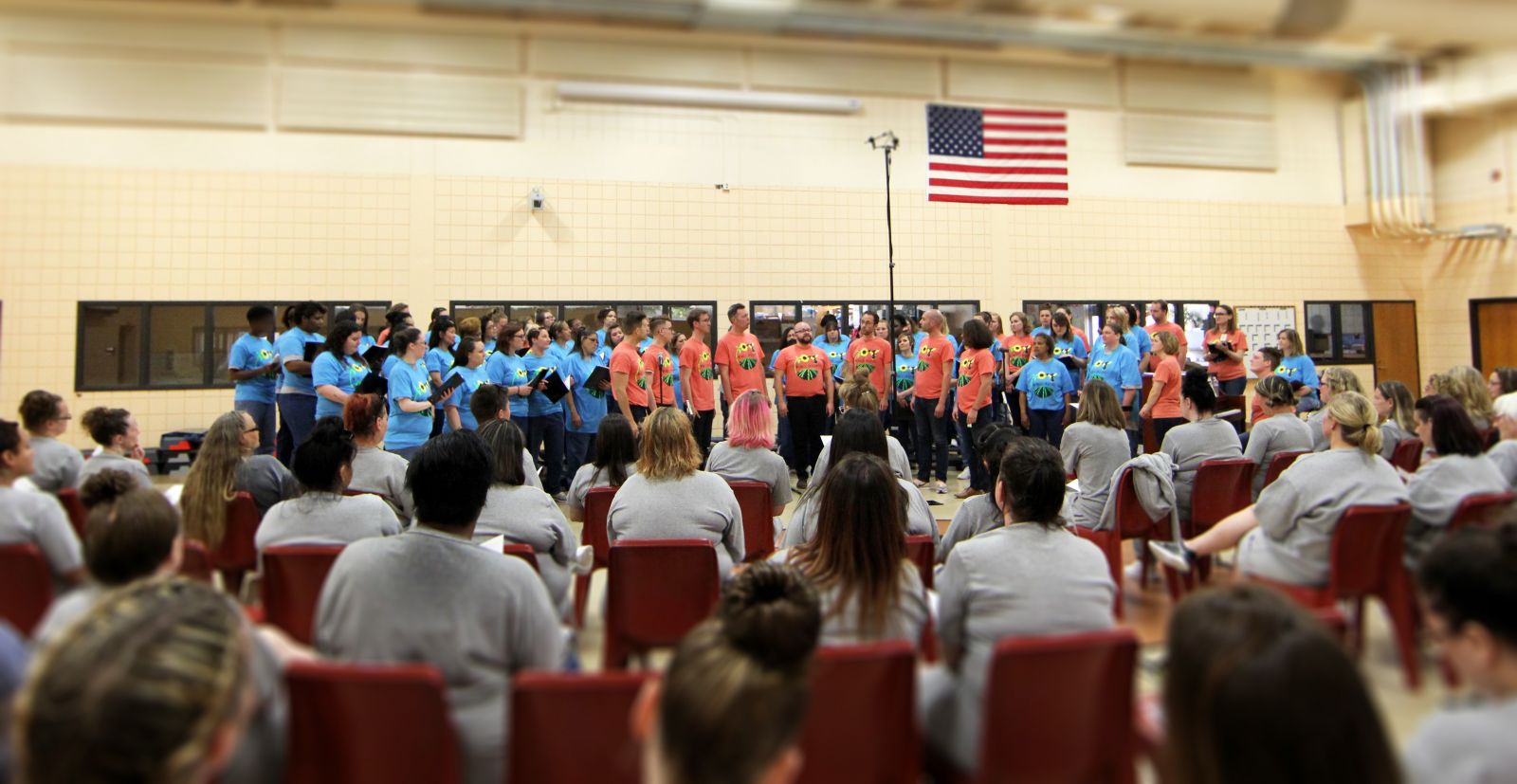
Image: A concert in the Shakopee prison
Why is Voices of Hope important to residents of the Shakopee and Stillwater facilities?
Singers in VOH are recognized as individuals worthy of respect and dignity. We use music as a tool for creating a humane space, so that singers build a community of trust with volunteers and with each other. Most of our singers haven’t had strong or healthy relationships. We try to counteract the message they hear daily in prison, which is that they don’t matter.
Does Voices of Hope perform? For whom?
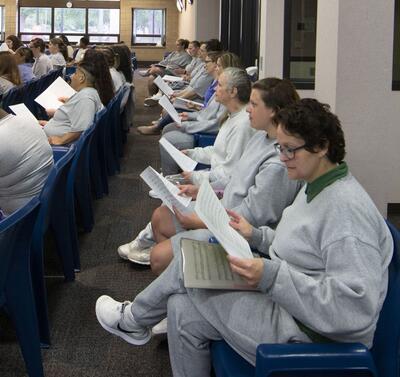 We do sing concerts, but only for other residents. Incarcerated people cannot leave their facility, and visitors are not allowed to assemble. Carceral restrictions are a constant presence. Last June, for example, we were ready to sing our first performance since Covid. I took the microphone and said a few words, one of our singers introduced the first song, and then before we sang a note, a loudspeaker announced a lockdown for an inmate count. We had been granted a performance time of exactly one hour, and the count took 45 minutes. When we finally sang a 15-minute concert, those 15 minutes had an immediate emotional urgency.
We do sing concerts, but only for other residents. Incarcerated people cannot leave their facility, and visitors are not allowed to assemble. Carceral restrictions are a constant presence. Last June, for example, we were ready to sing our first performance since Covid. I took the microphone and said a few words, one of our singers introduced the first song, and then before we sang a note, a loudspeaker announced a lockdown for an inmate count. We had been granted a performance time of exactly one hour, and the count took 45 minutes. When we finally sang a 15-minute concert, those 15 minutes had an immediate emotional urgency.
Image: Audience members in Shakopee
How is VOH working to change perceptions of incarceration?
As much as possible, we are connecting people on the outside with people on the inside. The abbreviated concert in June was recorded, and at a listening party on the outside we could feel the excitement, the disappointment, and the excitement again. Connections help humanize individuals confined to prisons. VOH holds quarterly community events, and we engage in partnerships with outside choirs. We will soon participate in a fundraiser for Children of Incarcerated Caregivers. All of these activities are part of our efforts toward restorative justice. The typical view of restorative justice is a one-on-one interaction: the person who caused the harm faces the person harmed. We are asking these questions on a bigger level. How can our organization support other organizations? How can we repair holes in the fabric of the community?
Would you like to see programs like Voices of Hope all over the country? Is it scalable?
I’d like to see all sorts of arts programs in carceral facilities, including music, writing, dance, art—anything that h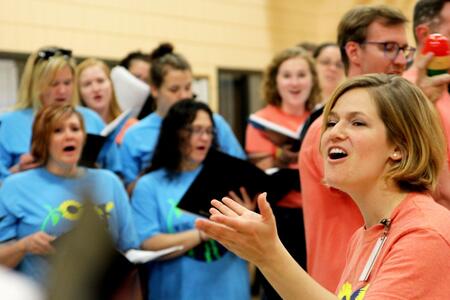 elps people express themselves. There is no cookie-cutter model that can be applied everywhere, but there are common ideas that can be shared. Unfortunately, there is no guaranteed stability in any of these programs. I know of some that were abruptly canceled, apparently at the whim of the warden.
elps people express themselves. There is no cookie-cutter model that can be applied everywhere, but there are common ideas that can be shared. Unfortunately, there is no guaranteed stability in any of these programs. I know of some that were abruptly canceled, apparently at the whim of the warden.
How did the ISM prepare you for your work with Voices of Hope?
The ISM in general, and my Colloquium project in particular, shaped me to be a collaborative thinker. Voices of Hope is a multidisciplinary choir, for which musical training is only a small part of what I bring to the table.
What qualities does the conductor of a prison choir need to possess in order to succeed?
Any volunteer leading an activity has to be able to manage a group in a social environment. VOH is working with people who have experienced trauma. I don’t try to fix or manage their trauma, but I do try to figure out the vibe in the room, and let the rehearsal go where it needs to go. Above any musical goals, the conductor needs to be  interested in caring for the whole person. Beyond that, it’s all about showing up. My commitment to being there every week is what builds trust. Many of the singers in VOH don’t have anyone else who visits.
interested in caring for the whole person. Beyond that, it’s all about showing up. My commitment to being there every week is what builds trust. Many of the singers in VOH don’t have anyone else who visits.
You have two small children. How do you balance your job at Westminster Presbyterian Church, your work in Shakopee, and your family?
I have been lucky to have people supporting me, including my amazing husband, and I am grateful that Westminster is supportive of my work with VOH.
How can readers help Voices of Hope or learn more about the organization?
We are always in need of donations. It seems obvious to me that we should fund programs that reduce recidivism and improve residents’ behavior, which arts programs definitely do, but there is still resistance to funding prison programs. Donations can be made on the Voices of Hope website. Questions can be addressed to voicesofhope@gmail.com.
— By Laurie Ongley
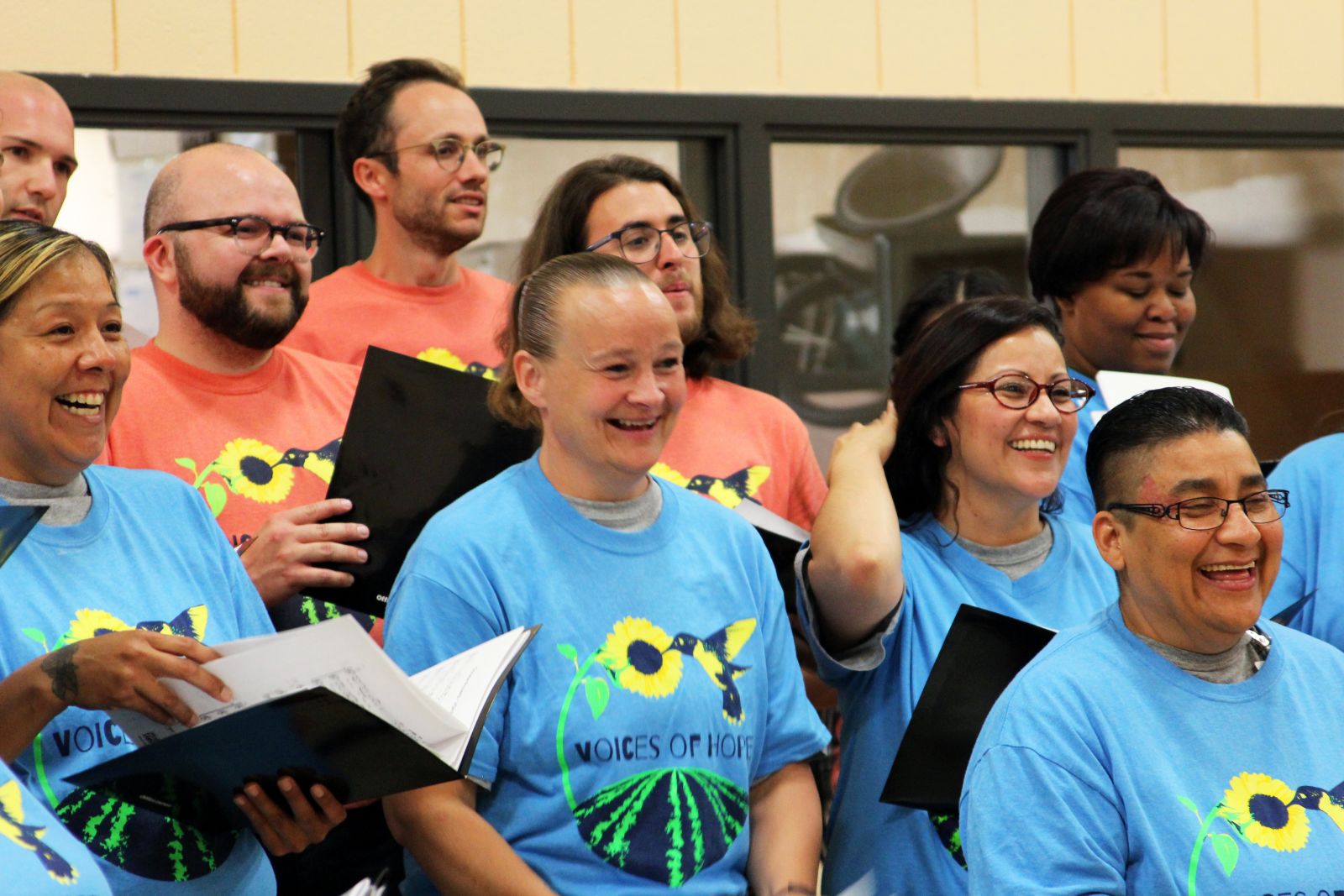
Image: Preconcert excitement in Shakopee